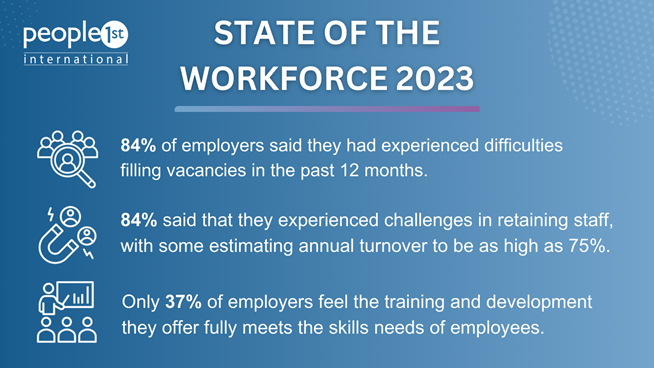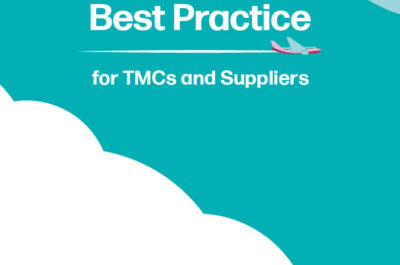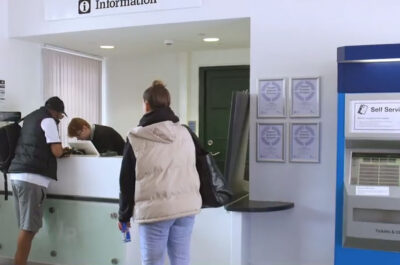The recruitment and retention struggles experienced by all but a small handful of employers is compounded by the rise in the ‘accidental manager’ as well as a perceived lack of opportunity in the sector, according to People 1st International.
New research by not-for-profit People 1st International, supported by the Business Travel Association, sheds light on some of the deep-rooted staffing issues impacting upon the sector, leading to calls for greater investment in employee retention and development.
84% of employers said they had experienced difficulties filling vacancies in the past twelve months. The same percentage said that they experienced challenges in retaining staff, with some employers estimating annual staff turnover to be as high as 75%.
The research also revealed that losing staff within the first six months is increasingly common and less than a third of employers feel that there are clear progression routes within their organisation.
The findings have also prompted renewed calls for a rethink of apprenticeship levy rules, with 64% of respondents saying that they would like more flexibility in the use of the apprenticeship levy funds which would help balance short term immediate skills gaps and longer-term productivity-focused training.
These results underscore some of the underlying structural issues that sorely need addressing.

Jane Rexworthy is Executive Director of People 1st International. She says that these latest findings are a clarion call for the industry, government and delivery partners to prioritise leadership and management skills to help businesses recruit, retain and develop employees more effectively and to take action to close the skills gap required to help grow an internationally competitive industry.
“The travel and tourism sector is set to contribute £252 billion to the UK economy in 2023. WTTC forecasts that the sector will create almost 380,000 jobs this year, recovering almost all of the jobs lost due to the pandemic to reach more than 4 million in total, meaning that around one in nine workers in the UK work in the travel and tourism sector.
“Despite this, underlying structural issues still need to be addressed, validated by the fact that only 37% of employers feel the training they offer fully meets the skills needs of employees.
“The sector has suffered with high labour turnover, exacerbated by the pandemic. However, rising staff costs and a competitive labour market means that businesses are having to rethink their strategy. Shifting the emphasis to retaining talented staff is essential. To achieve this, we need to build the management and leadership capabilities within the sector, which in turn will drive retention and productivity.”
The research underscores the fact that managers in the sector have often been promoted because of their technical skills, without receiving formal management and leadership development. This rise of the ‘accidental manager’ has led to managers not having the skills needed to manage, motivate and retain staff effectively. A recent study by the Chartered Management Institute demonstrates the significance of this problem with ‘accidental managers’ contributing to almost one in three workers quitting.
Jane continues: “Many businesses are working harder than ever to offer a better-quality job experience and the research showcases a number of the successful approaches being adopted by employers.
“At a local, regional and national level we need to ensure that sufficient work is done to attract and retain a skilled and sustainable workforce and to provide high-quality training and development that is the platform to an attractive and rewarding career in the long-term. And our research identifies a number of ways forward to address this.”
The research, which canvassed hundreds of firms employing more than 250,000 workers across the wider visitor economy sector, is backed by the Business Travel Association. Their Commercial Director, Andrew Clarke, had this to say about its findings.
“The State of the Workforce 2023 should be like a roadmap for our members and partners, as they map out 2024 objectives for their workforces. The findings in the three categories – recruitment and retention, skills gaps analysis and training and development – will allow us to assess the importance of the BTA Academy programme and understand the positive impact of these initiatives to better the future of the business travel industry.
“Surveys such as this are a vital playbook for industry collaboration, championing all our diverse sectors and businesses.”
Theodore is the Co-Founder and Managing Editor of TravelDailyNews Media Network; his responsibilities include business development and planning for TravelDailyNews long-term opportunities.































































































































































































